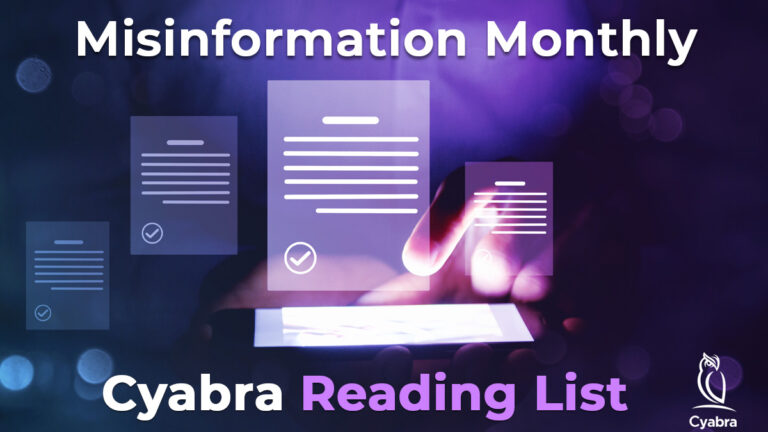Cyabra’s analysis detected a rise in abortion disinformation on social networks following Roe v. Wade. remarkably, most of it was spread by authentic, pro-choice profiles.
“Today the Supreme Court of the United States expressly took away a constitutional right from the American people that it had already recognized.” (President Joe Biden)
On June 24, 2022, the US Supreme Court overturned Roe v. Wade, the 1973 Supreme Court decision, taking away the constitutional right to abortion. Thirteen states had abortion ban laws in place designed to take effect automatically, and some criminalized seeking an abortion or helping someone who is seeking it. Other states passed legislation to protect and expand the right to abortion care. Social networks exploded with discourse, and disinformation spread like wildfire. Surprisingly, most of this disinformation was not spread by anti-abortion supporters, but by pro-choice and women’s rights advocates.
“Medicinal Herbs” and Other Myths
The Coronavirus has been a wake-up call for governments and health organizations, who experienced firsthand the spread of health disinformation and conspiracy theories. Of course, distrust of medicine didn’t start with Covid-19, and has only grown since. “Alternatives” to the contraceptive pill (commonly referred to as “the pill”) are not a new topic in online conversations, but when the Supreme Court decision came into effect, it caused a huge rise in discourse regarding those “alternative abortion inducers”.
As it happened, social networks’ new policies encouraged the spread of disinformation by removing posts offering abortion pills to women who might no longer have access to them.
Following those new policies on Facebook and Twitter, Cyabra uncovered a new trend, as multiple pro-choice supporters previously offering help purchasing or delivering the pill were now speaking of medicinal herbs and home remedies for miscarriage, and framing this content as cautions and warnings about weeds that should not be taken during pregnancy because they will cause an abortion.
The problem? Those herbs were not only proven as ineffective abortion inducers, but could also cause great harm to those taking them.
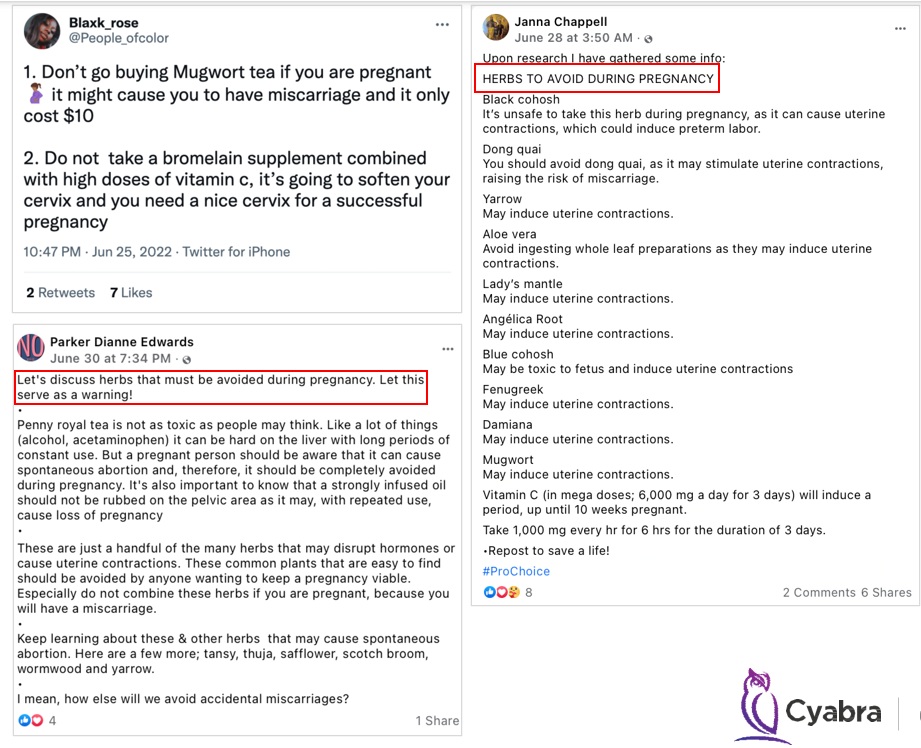
Authentic Profiles Spreading Inauthentic Information
Cyabra analyzed 12,728 profiles that spread misinformation regarding abortion in the last month (June 10 to July 10) on Twitter, Facebook, and TikTok. Our analysis also sampled the authenticity of 2,687 of those profiles on Twitter and Facebook.
The scan contained the herbs most referred to in those discussions, with the searches: “Mugwort and abortion”, “Pennyroyal and abortion”, and “Blue cohosh and abortion”.

A massive increase in the spread of disinformation began on June 21, and peaked on the day of the supreme court ruling, friday, June 25, with 125% more content than the day before.
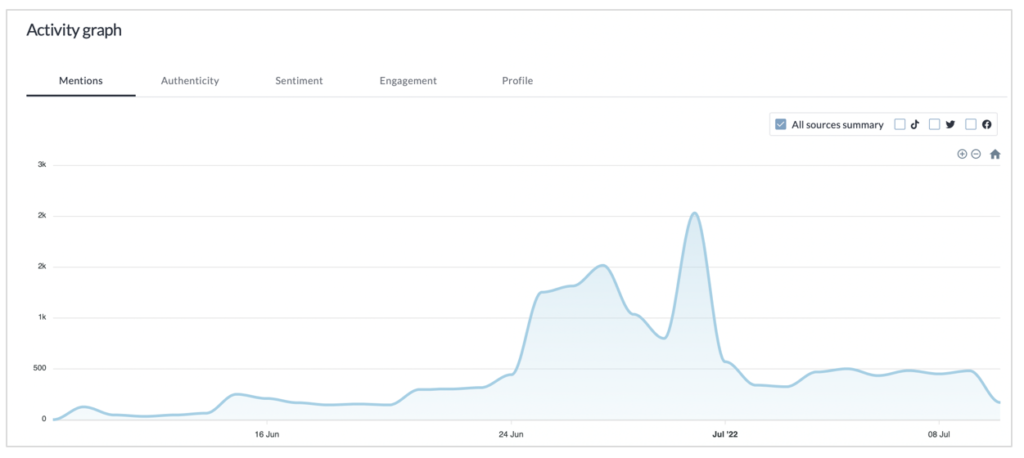
Cyabra’s analysis also discovered that 5.5% of the profiles that were spreading disinformation or engaging with it on Twitter and Facebook were inauthentic. This number is significantly low compared to past similar events. Usually, discourse involving disinformation includes a high involvement of inauthentic profiles and even fake communities that try to spread false information – the number of inauthentic profiles can go as high as 15% of all the profiles engaged, and sometimes higher.
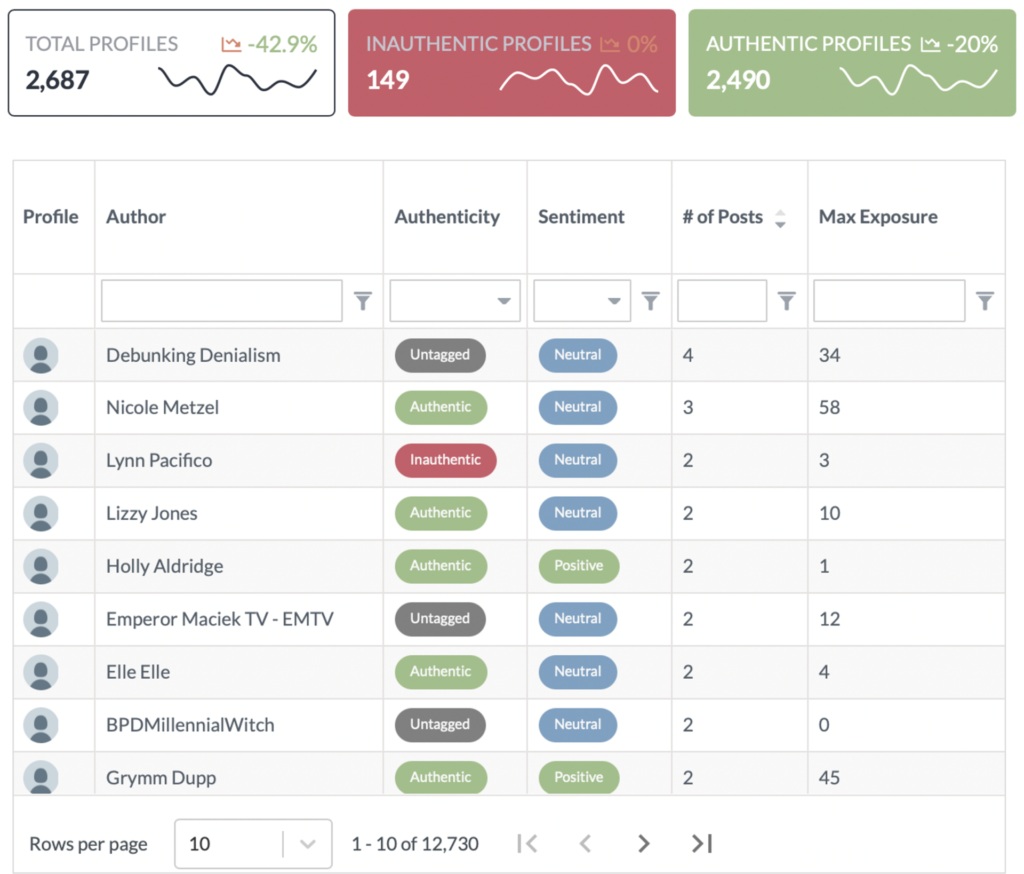
Passionate TikTokers Don’t Use Google
TikTok was the social platform where most abortion-related disinformation was spread, with over 10,000 posts and comments relating to the subject. TikTokers were also spreading those “abortion solutions” without trying to disguise it.

The main hashtags on the platform regarding this discourse were #roewade, #abortion, and #abortionisessentialhealthcare. Interestingly, Twitter and Facebook users made less use of those hashtags, presumably due to those social networks’ policies.

Unsurprisingly, the most active country in the discourse was the United States, followed by the United Kingdom.
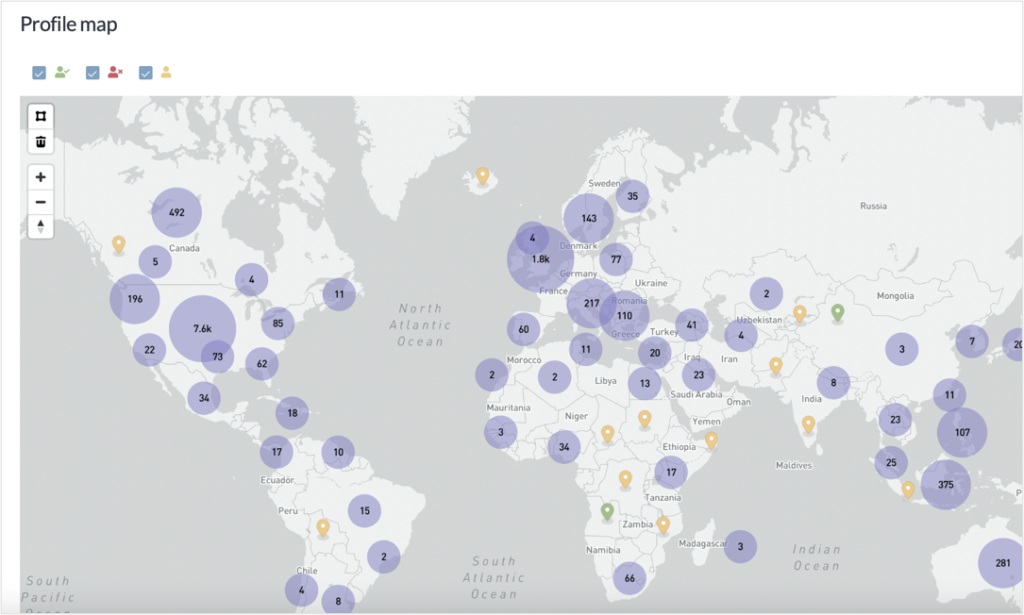
Fact-Checking as a Way of Life
There’s quite an irony in a wave of disinformation spread by authentic and presumably caring, well-intended profiles. Cyabra’s advice, in this case, is to always fact-check before you share, whether the information is spread widely or sporadically, and whether it’s spread by authentic users or by your best friend.
Want to know more about abortion disinformation? Check out the links below for doctors and researchers explaining the harm in those so-called “medicinal herbs” and home remedies.
Abortions Disinformation Debunked:
- Deadly Abortion Misinformation Rings Alarm Bells for Doctors, TikTok
- Doctors Debunk ‘Herbal Abortion’ Viral Videos
- Experts warn against using herbs as abortion alternative
- Herbal Recipes for Abortion Are Unproven and Can Be Dangerous, Contrary to Social Media Posts
- Pennyroyal plant contains a deadly toxin, never use it to induce an abortion
More About the Effects of Roe v. Wade:
- Interactive Map: US Abortion Policies and Access After Roe v. Wade
- Who Will Be Most Impacted by the Supreme Court’s Decision
_______
The data in this article has been analyzed by Cyabra’s platform over a period of one month (June 10 to July 10). The scan included 12,728 profiles.
Interested in the full report? Contact us!


